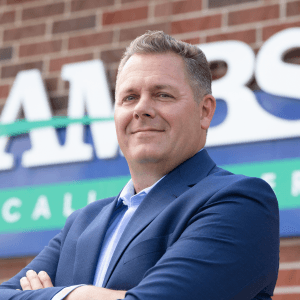Do Your Customers Like You? Ask Them the Ultimate Question
The questions are simply as follows:
1) On a scale from 0 to 10, how likely are you to refer Ambs Call Center to a friend or colleague?
2) Please share with us any comments regarding your rating.
The survey allows us to categorize how well we are doing in our customers’ eyes. In a 24/7 call center environment like ours, customer service is, as it's said: ‘a journey not a destination’ so we thrive on working to constantly improve service to our customers. Maintaining, and building answering service satisfaction along with general customer happiness with our brand is a major priority.
The Net Promoter Score was originally developed by Fred Reichheld in his 2006 book The Ultimate Question. Richard Owen and Laura Brooks took the concept a step further in their book ‘Answering the ULTIMATE QUESTION’, focusing on implementing the "ultimate question" and providing readers with actual case studies.
The Net Promoter Scoring is as follows:
- Promoters (score 9-10) which are customers who are completely satisfied and will refer others, fueling growth.
- Passives (score 7-8) are satisfied but unenthusiastic customers who are vulnerable to competitive offerings.
- Detractors (score 0-6) are unhappy customers who can damage your brand and impede growth through negative word-of-mouth.
To calculate the NPS, take the percentage of customers who are Promoters and subtract the percentage who are Detractors. We take feedback and follow up with each client personally.
We enjoy using the NPS over previous surveys because it offers us almost real-time, actionable data. In the past we used a 30 question survey that had an extremely poor response simply because of the amount of time it took to complete the survey.
The NPS is a quick snap shot that gives us what we need to know so that we can continue to deliver excellent quality of service to our customers.
If you found this helpful, you may also enjoy reading:
- How Long Does it Take to Get My Answering Service Started?
- 5 Things to Know When Comparing Professional Answering Services
- 6 Questions to Ask When Hiring an Answering Service
- How Much Does An Answering Service Cost?
- How to Select the Right Answering Service Plan
- 4 Hidden Answering Service Charges You Need to Know About

 Phone Answering Service
Phone Answering Service Virtual Receptionist
Virtual Receptionist Employee Reporting Service
Employee Reporting Service Automated Messaging
Automated Messaging All Answering Services
All Answering Services Call Centers
Call Centers Professional
Professional Service
Service Property Management
Property Management Manufacturers
Manufacturers Veterinarians
Veterinarians Healthcare
Healthcare Resources
Resources The AMBS Difference
The AMBS Difference About AMBS
About AMBS



